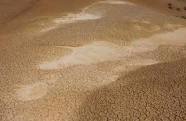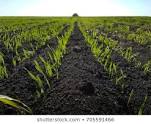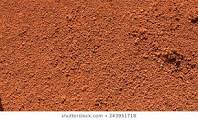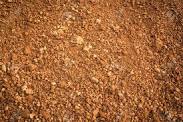SOIL TYPES IN INDIA: FEATURES
INTRODUCTION
Soil is the porous, powdery and unconsolidated outer layer of the earth’s crust which is formed by weathering of minerals and decomposition of organic substances. Soil is the basis and stratum of life hence often abbreviated the term “soil”as
S——-Stratum/soul
O——-of
I——–Infinite
L——–Life
CONCEPT OF SOIL–
There are two basic concepts of soil-
- Pedology- According to pedology, soil is natural body and is a biochemical weathered and synthesized product of nature. Therefore, to study the origin, classification and description of soil is known as pedology.
- Edaphology– To study the soil from the standpoint of higher plants is known as edaphology. According to edaphology, soil is natural habitat of plants.
SOILS OF INDIA
Soils of India are broadly classified into four groups-
Alluvial Soils (Entisols, Inceptisols, Alfisols)
- Mostly available soil in India (about 43%) which covers an area of 143 sq.km.
- Such soil is widespread in northern plains and river valleys include deltaic alluvium, calcareous alluvium, coastal alluvium and coastal sands formed by transportation in streams and river and are deposited in flood plains or along coastal belts.
- Highly fertile, humus, lime and organic matters are present.
- Indus-Ganga-Brahmaputra plain, Narmada-Tapi plain etc. are the examples.
- New alluvium is termed as “Khadar” which is sandy, light colored and less kankary; while old alluvium is termed as “Bhangar” which is more clayey, dark and full of kankar.
- Rich in potash, Poor in phosphorous. Wheat, rice, maize, sugarcane, pulses, oilseed etc. are cultivated mainly.

Black soils (Vertisols, Inceptisols, Entisols)
- The typical soil derived from deccan trap is called regur or black cotton soil; the sedentary soil derived from mostly granite and gneiss, clayey in nature, practically uniform throughout profile, parent rocks are generally hornblendic type,
- Rich in lime and magnesia and lime soda-type feldspar.
- Mature soil, containing high water retaining capacity. It swells and will become sticky when wet; and shrink, when dried.
- Self-ploughing is a characteristic of the black soil as it develops wide cracks when dried.
- It is rich in Iron, lime, calcium, potassium, aluminum and magnesium; while deficient in Nitrogen, Phosphorus and organic matter.
- Color is deep black to light black and clayey in texture.
- Occurrence of such soil is in Maharashtra, west M.P, parts of Andhra Pradesh, Gujarat and some parts of Tamilnadu.

Red soils (Alfisols, Ultisols, Inceptisols)
- Such soils formed from ancient crystalline metamorphic rocks, color due to wide diffusion.
- This soil occupies the largest area in Tamilnadu. Occurrence of such soil is in vast are of Tamilnadu, Karnataka, Goa, Daman & Diu, South east Maharashtra, east Andhra, M.P, Orissa and chhotanagpur, santhal parganas, Jhansi, Hamirpur. Poor in N, P and humus, potash.
- Light soil, silica-sesquioxide ratio is 2.0, soils generally shallow and low is soluble salts. pH ranges from 7.0-7.5.
- The soils under lift irrigation is known as garden lands and hungry and thirsty, opposite of black soils in almost all physical and chemical properties.
- In the light and frequent rains of south west monsoon, red soils permit sowing being earlier than other soils, hence called early soils.
- Sandy to clay and loamy in texture. Wheat, cotton, pulses, tobacco, oil seeds, potato etc. are cultivated mostly.

RED SOILS
Laterite soils (Alfisols, Ultisols, Oxisols)
- Name from Latin word ‘Later’ which means Brick.
- Such soil is formed under heavy rainfall and high temperature alternating. The heavy rains leach the salts and left in a porous matrix with a characteristic vesicular structure, facilitating easy drainage.
- Become so soft when wet and so hard when dried.
- Organic matters of the soil are removed fast by the bacteria due to high temperature and humus is taken quickly by the trees and other plants, thus humus content is low.
- Rich in Iron and Aluminum while deficient in Nitrogen, Potash, Potassium, Lime, and Humus.
- Rice, Ragi, Sugarcane and Cashew nuts are cultivated mainly.
- Occurrence- hills of Karnataka, Kerala, M.P, eastern ghat of Orissa, Maharashtra, W.B, Tamilnadu and Assam.

Desert Soil (Antisol, Aridisol)
- Such soil is found under Arid and Semi-Arid conditions. Deposited mainly by wind activities.
- High salt content, lack of moisture and Humus. Kankar or Impure Calcium carbonate content is high which restricts the infiltration of water.
- Nitrogen is insufficient and Phosphate is normal.
- Texture: Sandy, Color: Red to Brown.
- Occurrence- west Rajasthan, Haryana, Punjab, lying between Indus river and aravali range.
Frequently Asked Question (FAQ)
Which type of soil is mostly found in India?
Mostly available soil in India is Alluvial soil (about 43%) which covers an area of 143 sq.km.
Black soil is mostly found in?
Maharashtra
Red soil is mostly found in?
Tamilnadu
Which soil is formed under heavy rainfall and high temperature alternating?
Laterite soils. Mostly found in Karnataka & Kerala.
Read more…
WHAT IS SOIL EROSION- TYPES & MECHANISM
TYPES OF FARMING- SYSTEM OF FARMING
WHAT IS ORGANIC FARMING
INTEGRATED FARMING SYSTEM
Soil Porosity
Great initiative
Thank you naresh. i hope you get some reading material.
Very nice Sir
thank you shiv hari. please refer also to your junior students.
Hello , i just want to share with you this money making method Earn up to $500 per sale with high ticket backend offers >>> https://warriorplus.com/o2/a/dzkw6/0
Hello , would like to make more money from your website ? why not try to monetize your traffic and make up to 500$ aday , try propellerads and see how your daily earning can be increased >>> https://cutt.ly/ads-wordpress , if you have good daily traffic you can make alot of money along with adsence , try it for few days and see the results >> https://cutt.ly/ads-wordpress
Hello , i see the your website get very good daily traffic , why donot you make more money by joining >> https://cutt.ly/ads-wordpress , your daily earning will be increased alongside with adsence try it now for few days and see your daily earning >> https://cutt.ly/ads-wordpress